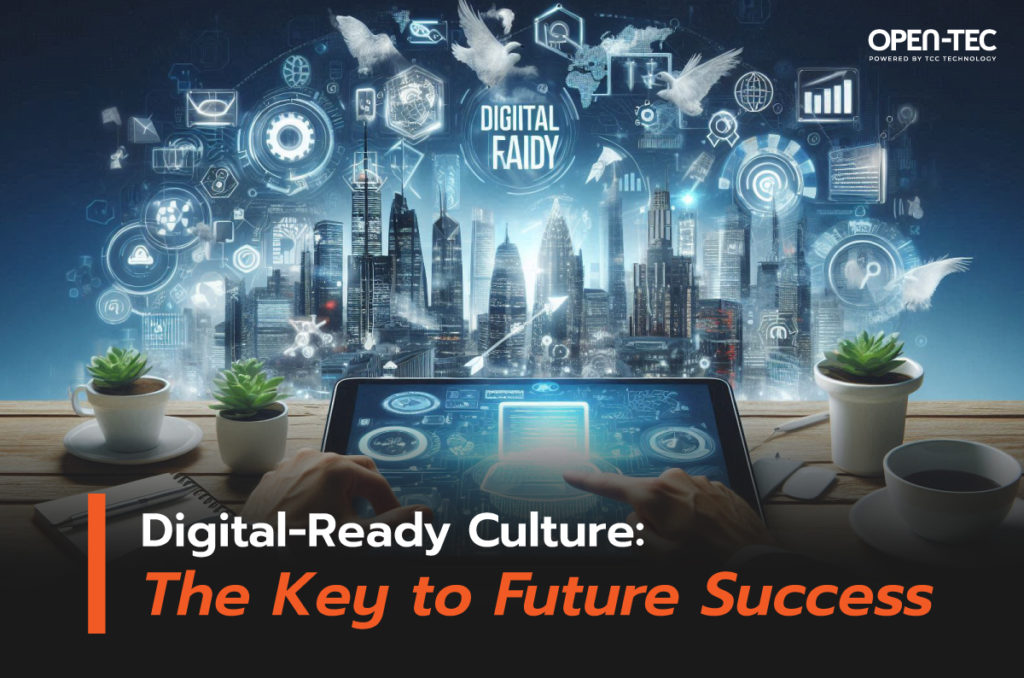In today’s digital era, technology plays a vital role in driving business transformation. The ability to process large volumes of data, perform in-depth analysis, and reduce labor-intensive tasks has become increasingly widespread across industries. However, despite significant investments in digital technologies, many organizations still face challenges in achieving the expected result from transformation due to the lack of ability to adapt people’s mindsets and organizational culture. Today, OPEN-TEC, Tech Knowledge Sharing Platform, powered by TCC TECHNOLOGY GROUP, will explore the key roles and core factors behind successful digital transformation within organizations.
Technology Enables, But People Drive Success
Effectiveness in applying technology in an organization requires a clear understanding of goals, workflows, and constraints. Without these factors, technology alone can lead to more complicated processes. For instance, quality control in hotels, creative design support, or strategic decision-making based on data analytics all rely on human insight to be truly effective. Therefore, digital transformation must go hand in hand with the development of a workforce that is open-minded, adaptable, and capable of working with new technologies.
An Organizational Culture that embraces change Is the Foundation of Success
No matter how advanced technology becomes, it will be ineffective if the organization clings to outdated work practices. A culture that encourages learning, experimentation, and diverse perspectives is essential for leveraging technology effectively. Organizations that involve employees at all levels in designing tech-driven workflows are more likely to see widespread adoption, not just at the policy level, but in daily operations as well. Fostering a culture that embraces change is no longer optional; it is critical for survival and growth in an ever-evolving business landscape.
Tech-Savvy Leadership as a Driving Force
Leaders in the digital age don’t need to be tech experts, but they must understand the potential of technology and how to apply it strategically. Leaders with a digital vision can effectively communicate goals and inspire their teams, while also supporting the development of new skills essential for the future of work. Also, they have to be willing to listen, collaborate, and foster a workplace environment that supports sustainable change. Leaders who are open-minded and understand technology are needed in guiding their organizations toward authentic digital transformation.
Lifelong Learning Is the Key to Long-Term Survival
Learning must go beyond occasional training sessions. It should become a deeply embedded cultural norm within the organization. Providing employees with access to knowledge resources, upskilling opportunities, and safe spaces for experimentation and failure creates an adaptive, resilient organization. As technology continues to evolve, so must business practices. Those who foster continuous learning are better equipped to thrive in the long term.
As mentioned above, organizations that can successfully integrate technology with cultural transformation, continuous learning, and adaptive leadership are those best positioned to successfully navigate digital change.
Source: some of this content has been compiled from the seminar “TMA Digital Dialogue 2025.”
